This article was co-authored by Jurdy Dugdale, RN. Jurdy Dugdale is a Registered Nurse in Florida. She received her Nursing License from the Florida Board of Nursing in 1989.
There are 10 references cited in this article, which can be found at the bottom of the page.
wikiHow marks an article as reader-approved once it receives enough positive feedback. In this case, 87% of readers who voted found the article helpful, earning it our reader-approved status.
This article has been viewed 226,940 times.
Although it's not a clearly defined disease, dementia is usually diagnosed when a person experiences a steep mental decline that interferes with their everyday life. It causes issues with memory and cognitive abilities, which can be debilitating.[1] While it's common, dementia is also hard to diagnose, so you'll need to work with a doctor. A friend or family member can administer the Mini-Mental State Exam for a general idea of cognitive function, but a doctor can make best use of the results.
Steps
Preparing for a Doctor's Visit
-
1Make an appointment with a doctor. The other sections on this page contain tests which you can take at home. These can give you a little information if you have no other options, but they are not a good replacement for a doctor's diagnosis, according to the Alzheimer's Association.[2]
-
2Prepare your medical history. Certain drugs and medical conditions can increase your risk. Similarly, a family history of dementia and other risk factors can put you at a higher risk of developing dementia, though the disease isn't necessarily genetic. It's important for your doctor to rule out conditions that can mimic the symptoms of dementia, such as depression, thyroid issues, and side effects to medications, which can affect your memory and thinking. If your issues are caused by these conditions rather than dementia, you may be able to reverse your symptoms.[3] Be ready to give your doctor the following information:[4]
- Your diet, alcohol use, and drug use. Bring the bottles of any medication you are taking.
- Other known medical issues.
- Changes in your behavior (especially related to social situations or eating habits).
- Which of your biologically related family members have had dementia or dementia-like symptoms, if any.
Advertisement -
3Take a physical exam. Your physical checkup should include a blood pressure reading, taking your pulse, and a temperature measurement. Your doctor may also test your balance, reflexes, and eye movement, or perform a variety of other tests depending on your exact symptoms.[5] This helps them rule out other conditions that can cause your symptoms and make a more thorough diagnosis.
-
4Take a cognitive exam. There are many types of mental exams used to test for dementia, some of which are included in this article. Some common questions include:[6]
- State the day, month, and year.
- Draw a clock face at twenty past eight.
- Count backward from 100 by 7s.
-
5Undergo lab tests if necessary. If your doctor does not request blood samples or other lab tests, you might want to ask about thyroid hormone tests and vitamin B12 tests, since these are common tests that can potentially narrow down the cause of your symptoms.[7] There are many other tests that could be requested based on your specific medical history, but those are not necessary for every patient.
-
6Ask about brain scans. If you are showing some symptoms but the cause is not clear, the doctor may recommend a brain scan to investigate possibilities besides dementia. CT scans, MRI scans, and EEG tests are the most common types of scans used to help diagnose dementia-like symptoms. However, keep in mind that there is no definitive test for dementia.[8]
-
7Ask about genetic testing. Genetic testing is controversial, as even a gene linked to increased risk of dementia does not necessarily mean you will be affected. Still, if there is a history of dementia in your family, especially early-onset dementia, a genetic test could be useful to you or your doctor.[11]
- Keep in mind that genetic testing is a new field of research that is rapidly developing. It's possible your results won't be very useful. Similarly, the test may not be covered by insurance.
Taking a Mini-Mental State Examination (MMSE)
-
1Understand that this cannot be used as the only method of diagnosis. The Alzheimer's Association does not recommend using home tests instead of a doctor's visit.[12] Use this quick, 10-minute test only if you do not have immediate access to a doctor, or if you cannot convince a family member or friend to visit a doctor.
- Do not take this test if you are not fluent in the language it is being given in, or if you have a learning disability or dyslexia.[13] Visit a doctor instead.
-
2Understand how to take the test. The person who has possible dementia-like symptoms just needs to listen to instructions. A second person reads the steps below, and gives instructions or asks questions directed at the person being tested. Take note of how many points the test-taker earns for each section. At the end of the test, add up the scores in each section. Any score of 23 or below (out of 30 total) suggests possible cognitive impairment, which could indicate dementia or other health issues.
- No calendars should be visible during the test.
- Usually, 10 seconds are given to answer each question, with 30–60 seconds for questions involving spelling, writing or drawing.
-
3Test orientation to time (5 points). Ask the person suspected of dementia the following questions, one at a time, in order. Score one point for each correct answer.
- What year is it?
- What season is it?
- What month is it?
- What is today's date?
- What is the day of the week?
- Who is the president?
- Who am I?
- What did you have for breakfast this morning?
- How many kids do you have, and what are their ages?
-
4Test orientation to place (5 points). Ask where the person is currently located, in five separate questions. Score one point for each successful answer to the following:
- Where are you?
- What country are you in?
- What state are you in? (Or "province," "territory," or similar term)
- What city are you in? (Or "town")
- What is the address of this house? (Or "What is the name of this building?")
- What room are we in? (Or "What floor are we on?" for hospital patients.)
-
5Test registration (3 points). Name three simple objects (for example, "table, car, house"), and ask the person to repeat them immediately after you. You must say them all together, with pauses in between, and the test-taker must also repeat them back to you all at once. Also, tell them that you will ask them to recall these words in a few minutes.
- Score one point for each word successfully repeated on the first try.
- Keep repeating the three objects until the test-taker succeeds. Do not score any points for successes after the first try, but write down the number of repetitions it takes for the test-taker to remember all three objects. (This is used in some expanded versions of the test.
-
6Test attention (5 points). Spell the word WORLD ("W-O-R-L-D"). Then ask the test-taker to spell the word WORLD backwards. Score 5 points if he succeeds within 30 seconds, and 0 points if he does not.
- Some medical professionals find it helpful to write down the exact response the test-taker gives to this question.
- This step should not be translated into another language directly. Try to find a version of the MMSE in that language to see what word is usually used.
-
7Test recall (3 points). Ask the person to repeat the three words you told him to memorize earlier. Score one point per word remembered.
-
8Test language (2 points). Point to a pencil, and ask "What is this called?" Point to a wristwatch, and repeat the question. Score one point per correct answer.
-
9Test repetition (1 point). Ask the person to repeat the phrase "no ifs, ands, or buts." Score one point if he succeeds.
- This is another step that cannot be translated directly to other languages.
-
10Test ability to follow complex commands (3 points). Ask the person to follow a 3-step command (3 points). For example, tell the person to take a piece of paper in their right hand, fold it in half, and put it on the floor.
-
11Test ability to follow written commands (1 point). On a piece of paper, write "close your eyes." Pass the paper to the test-taker, and ask him to follow this command. Score one point if he does within ten seconds.
-
12Test ability to write a sentence (1 point). Ask the person to write any complete sentence. If it includes a noun and a verb, and makes sense, score 1 point. Spelling errors do not matter.
-
13Test ability to copy a drawing (1 point). Sketch a geometric design on a piece of paper: one pentagon (five-sided figure), with a second pentagon overlapping on one corner. Ask the test-taker to copy this design on his own piece of paper. Score one point if he succeeds in matching the following characteristics:
- Two shapes, both pentagons
- An overlap that creates a four-sided shape (or however many sides your original figure had).
-
14Check the results. If the test-taker scores 23 or below, visiting a doctor is recommended. Do not attempt to tell the test-taker what the results mean, if you do not have medical training in this area.
- If the results are 24 or above, but symptoms are still concerning, try taking the MoCA test as well.
Warnings
- Alcohol- and drug-induced dementia are serious diseases that can affect anyone of any age who has a problem with alcohol or drugs. It's important to get help for substance abuse if you need it.⧼thumbs_response⧽
References
- ↑ https://www.cdc.gov/aging/dementia/index.html
- ↑ https://www.nhs.uk/conditions/dementia/diagnosis-tests/
- ↑ https://www.alz.org/alzheimers-dementia/what-is-dementia
- ↑ http://www.alz.org/alzheimers_disease_steps_to_diagnosis.asp
- ↑ https://www.alz.org/alzheimers-dementia/diagnosis/medical_tests
- ↑ https://www.dementia.org.au/information/for-health-professionals/clinical-resources/cognitive-screening-and-assessment
- ↑ https://www.nhs.uk/conditions/dementia/diagnosis-tests/
- ↑ http://www.medicinenet.com/dementia/page15.htm
- ↑ https://www.alz.org/alzheimers-dementia/diagnosis/medical_tests
About This Article
If you fear that someone you love is showing possible symptoms of dementia, you can administer a Mini-Mental State Examination at home. To do so, ask a series of questions to evaluate the person’s orientation of time and place, like what year is it and what city are you in, and test their mental abilities by asking them to recall words and follow commands. Once you've finished the test, calculate their score: low score means they may have dementia. For tips from our Medical reviewer on how to book a doctor’s appointment to test for dementia, keep reading.
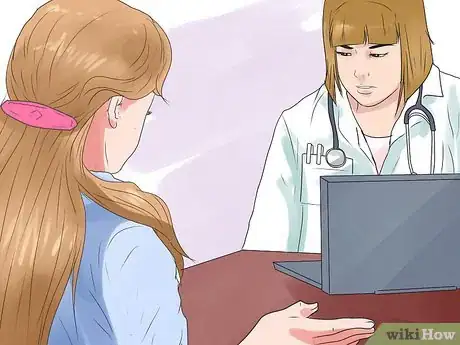
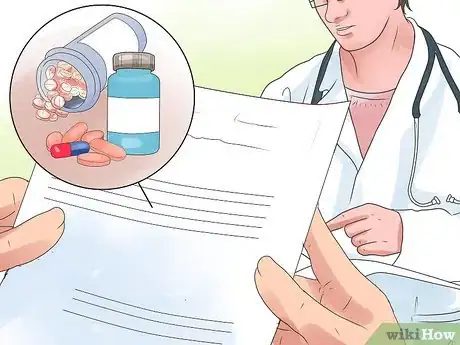
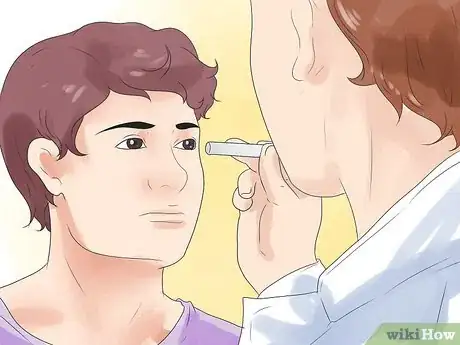
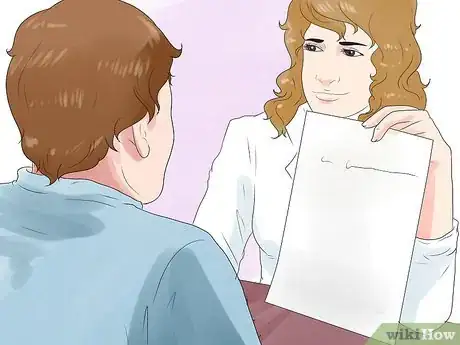
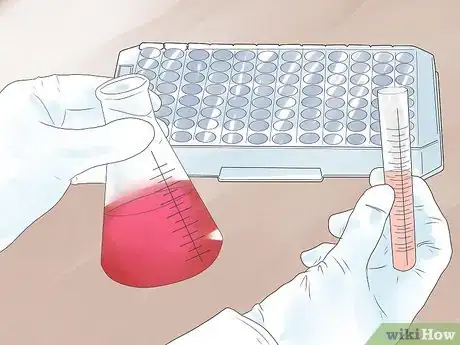
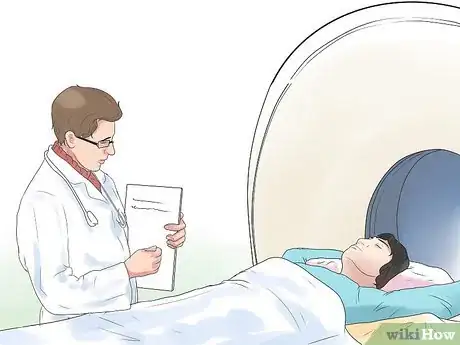


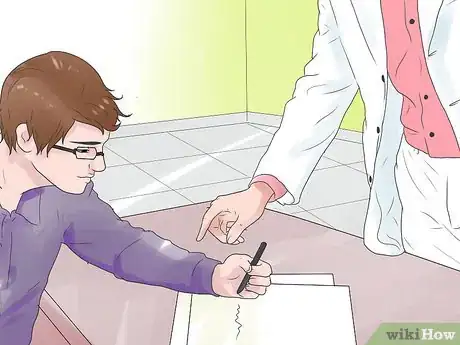

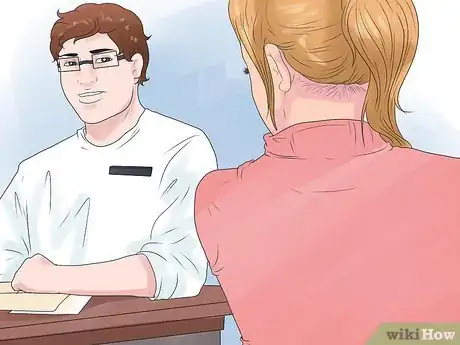


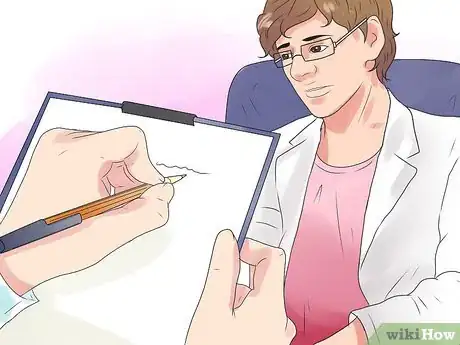
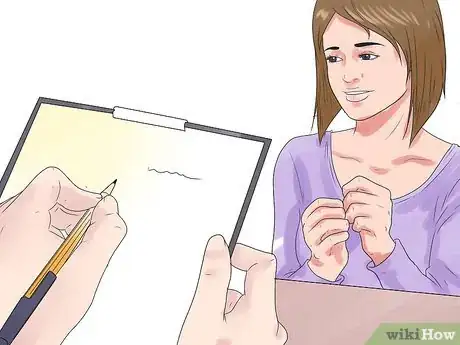
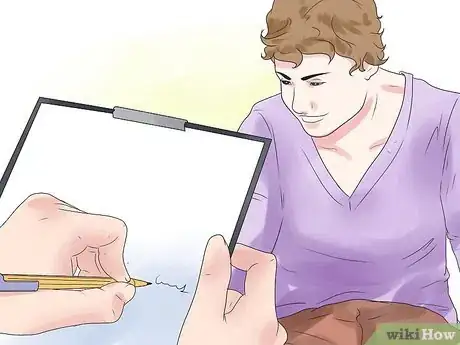
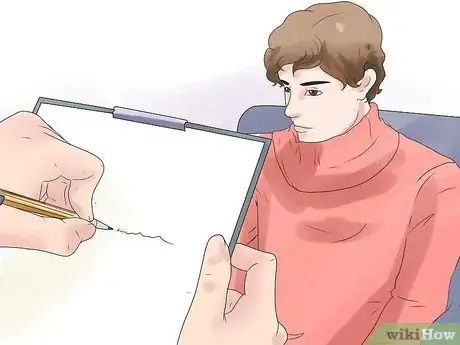
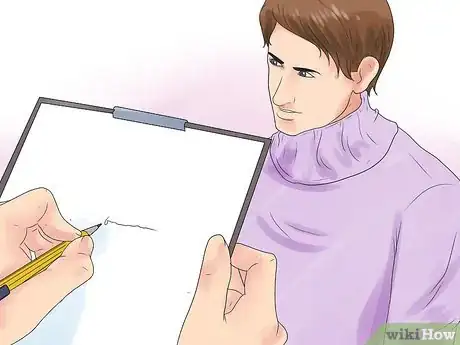
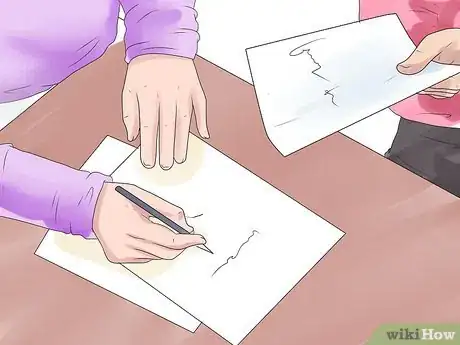
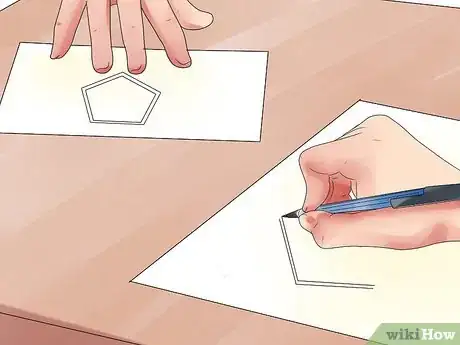
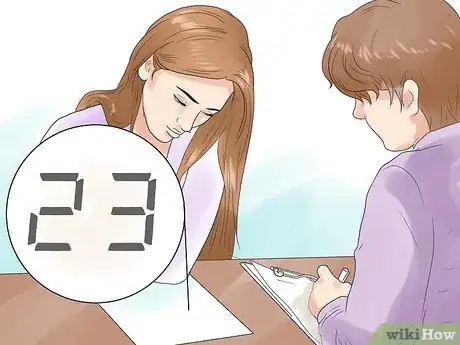
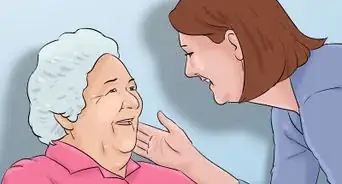
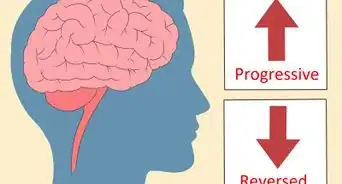

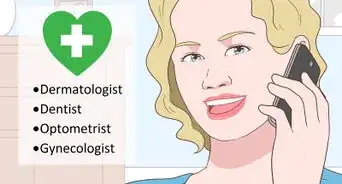








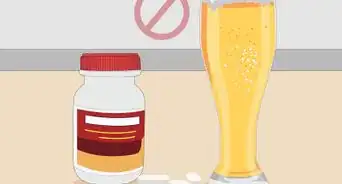
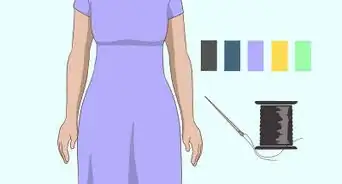










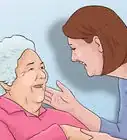
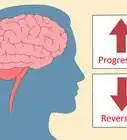





































Medical Disclaimer
The content of this article is not intended to be a substitute for professional medical advice, examination, diagnosis, or treatment. You should always contact your doctor or other qualified healthcare professional before starting, changing, or stopping any kind of health treatment.
Read More...